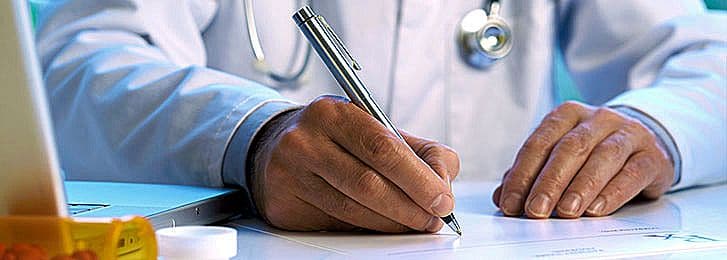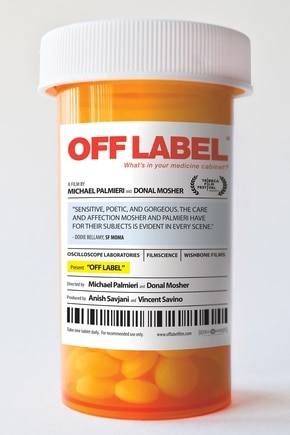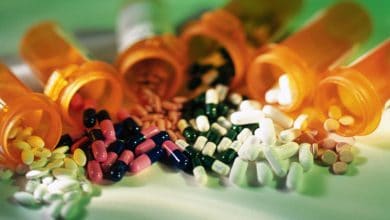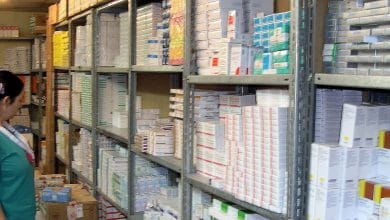
It may be surprising but yes: to treat a given condition, doctors may choose to prescribe a drug that was originally developed to treat another. Thus, it may happen that the pill we have been taking for years to manage anxiety is actually an anti-epileptic, or that the drug we have been prescribed as migraine prophylaxis was originally tested as a treatment for depression. These are the so-called off-label drugs ("off-label"): medicines used outside the conditions (e.g. pathologies, patient classes, dosages) for which they were authorized (1). A  This is a rather common practice, especially in some areas. A 2006 study that analyzed a group of drugs that are very common in daily clinical practice showed that 21% of these was prescribed for indications other than those provided for in the package insert (2). In some categories of patients, then, this rate can be even higher: a research that investigated this practice in the pediatric field, for example, highlighted off-label prescriptions in 78.7% of children and adolescents admitted to hospitals for minors (3).
This is a rather common practice, especially in some areas. A 2006 study that analyzed a group of drugs that are very common in daily clinical practice showed that 21% of these was prescribed for indications other than those provided for in the package insert (2). In some categories of patients, then, this rate can be even higher: a research that investigated this practice in the pediatric field, for example, highlighted off-label prescriptions in 78.7% of children and adolescents admitted to hospitals for minors (3).
Is it legal to prescribe off-label drugs?
In Europe, as well as in the United States, it is the regulatory agencies that establish, on the basis of rigorous analyzes carried out to evaluate the level of efficacy, safety and quality of the product, which drugs can be sold (and therefore prescribed) in the context of specific pathologies (4). The legislation that regulates the use of off-label drugs establishes that the doctor must comply with the therapeutic indications and administration methods defined by the marketing authorization, as assessed in the various phases of drug experimentation (5). However, as also specified by the Italian Medicines Agency (AIFA), "the law allows a 'different' use of the drug if the attending physician, on the basis of the evidence documented in the literature and in the absence of better therapeutic alternatives, deems it necessary to administer a drug outside the authorized indications for use. The prescription of off-label drugs is therefore permitted and regulated from a regulatory point of view and represents an important opportunity that can lead to significant progress in the knowledge and treatment of some pathologies” (6).
What are the benefits?
 off-label it is useful and widespread in specific clinical populations, such as children, pregnant women and the terminally ill (1). In certain situations, then, the off-label use of some drugs is so frequent as to represent the standard of treatment: for example, although not approved for this purpose, the use of aspirin for the prophylaxis of coronary heart disease in diabetic patients is recommended by international guidelines (8).
off-label it is useful and widespread in specific clinical populations, such as children, pregnant women and the terminally ill (1). In certain situations, then, the off-label use of some drugs is so frequent as to represent the standard of treatment: for example, although not approved for this purpose, the use of aspirin for the prophylaxis of coronary heart disease in diabetic patients is recommended by international guidelines (8).Doctor… is it dangerous?
The use of off-label drugs also involves a series of risks, especially in cases where they are prescribed in the absence of solid scientific evidence to justify it. Their use, we read in a 2006 article of the Drug information bulletin (formerly an AIFA journal) “exposes the patient to potential risks, considering that the efficacy and safety of these drugs have been evaluated on populations other than those covered by the off-label prescription. Therefore, it is necessary for the doctor, in addition to making use of the patient's informed consent, to explain the rationale for the therapy, the risk of possible adverse events, and what efficacy data are actually available in the off-label use of the drug to be administered” (6). In some cases, in fact, it has happened that doctors were reported due to side effects that emerged following the administration of an off-label drug (9).
Bibliography
- 1 . Day R, “Off-label prescribing”. Australian Prescriber 2013; 36:182-3
- 2 . Radley DC, Finkelstein SL, Stafford RS, “Off-label prescribing among office-based physicians.2 Arch Intern Med 2006; 166:1021-6
- 3 . Shah SS, Hall M, Goodman DM, et al. Off-label drug use in hospitalized children. Arch Pediatr Teenagers Med 2007; 161:282-90
- 4 . European Commission – Directorate-general for health and food safety. PRINT 6/30. Off-label use of medicinal products
- 5 . Art. 3 Legislative Decree 17 February 1998, n. 23, converted, with amendments, into Law 8 April 1998, n. 94.1.
- 6 . Dri P, “Off-label. Information bulletin on drugs” 2006; 3:140-1
- 7 . Dresser R, Frader J, "Off-Label Prescribing: A Call for Heightened Professional and Government Oversight." J Law Med Ethics 2009; 37:476-96
- 8 . Stafford RSS, “Regulating Off-Label Drug Use — Rethinking the Role of the FDA”. Nejm 2008; 358:1427-9
- 9 . Hartle A, Malhotra S, “The safety of propofol”. BMJ 2009; 339:928-9
Scientific Thought FNOMCeO – Doctor is it true that…?





